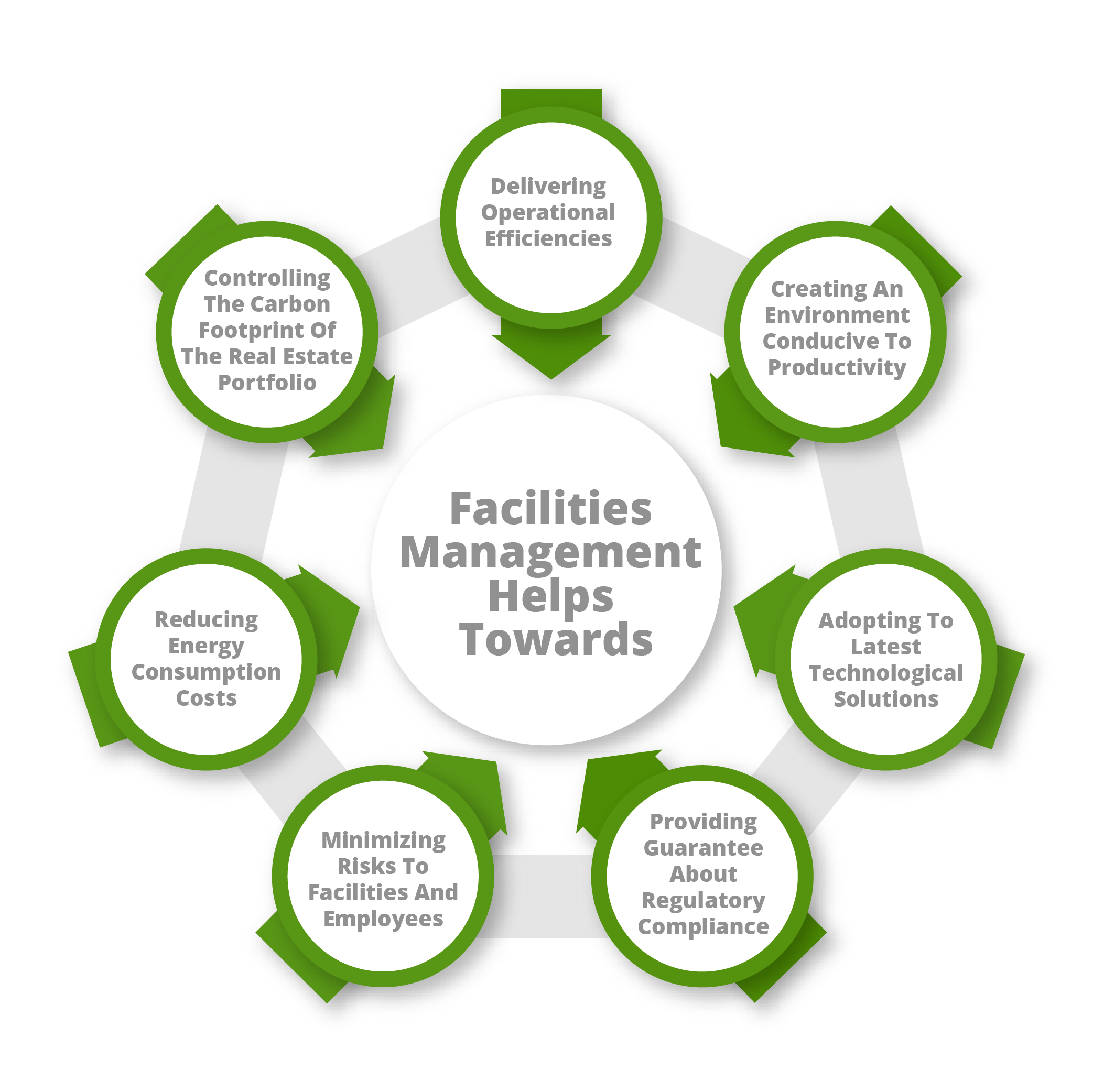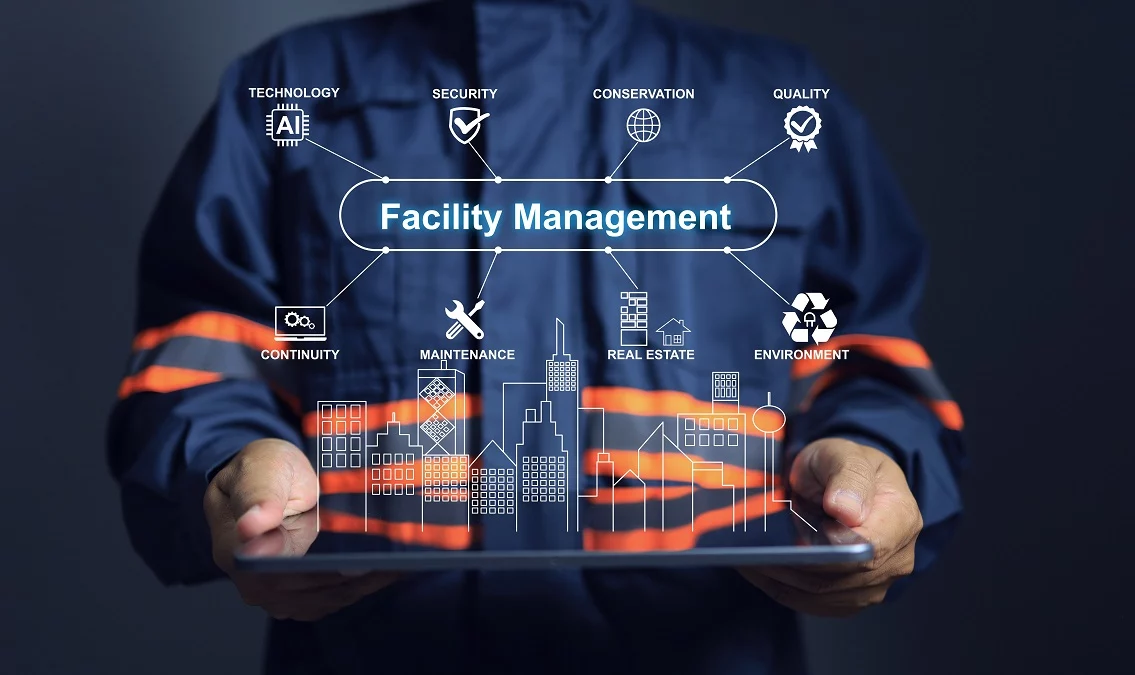How Total Facility Management Helps Businesses Enhance Asset Utilization
How Total Facility Management Helps Businesses Enhance Asset Utilization
Blog Article
Why Total Facility Management Is Important for Organization Success
Total Facility Management (TFM) acts as a foundation for company success by balancing varied functional facets such as upkeep, room utilization, and security actions. This assimilation not only enhances effectiveness but additionally lines up facility management with overarching organizational goals. As services navigate an affordable landscape, recognizing the complex advantages of TFM can be essential in driving price performance and boosting worker productivity. The implications of adopting TFM expand much beyond immediate operational gains, increasing crucial concerns concerning its lasting influence on business resilience and competitiveness. What lies beneath this important structure?
Recognizing Total Facility Management
Total Facility Management (TFM) includes a comprehensive strategy to handling an organization's buildings and linked solutions to make certain optimum functionality, security, and effectiveness. TFM incorporates numerous disciplines, including upkeep, operations, room management, and security methods, to develop a natural structure that sustains a company's core objectives.
At its core, TFM intends to streamline the procedures included in facility management, reducing redundancies and improving solution distribution. This strategy entails the coordination of tasks associated to building management, such as repairs, cleaning, and power management, to cultivate an effective environment for stakeholders and employees alike. TFM additionally emphasizes the value of applying best techniques and cutting-edge innovations to improve solution top quality and decrease operational prices.
By aligning facility management tasks with organizational objectives, TFM boosts overall performance while ensuring compliance with health and wellness, safety, and ecological policies. Thus, TFM offers not only as a logistical function however likewise as a critical property, contributing to an organization's lasting sustainability and growth.
Secret Benefits of TFM
Leveraging a thorough approach, organizations that implement Total Facility Management (TFM) unlock a myriad of benefits that add to overall service success. One of the key benefits of TFM is the improvement of operational performance. By combining facility services under a unified management framework, organizations can enhance processes, lower redundancies, and enhance communication throughout departments.
Moreover, TFM promotes a positive upkeep method, which reduces downtime and expands the life expectancy of facilitiess and tools (Total Facility Management). This aggressive approach not only improves productivity yet additionally promotes a much safer working atmosphere, inevitably leading to greater employee satisfaction and retention rates
Additionally, TFM assists in much better resource allotment by giving insights right into facility efficiency metrics. Organizations can identify areas for renovation, permitting them to make informed choices that line up with their tactical goals.
TFM and Cost Efficiency
Achieving cost effectiveness is a basic objective for organizations, and Total Facility Management (TFM) plays a critical function in this endeavor - Total Facility Management. By integrating different facility services under a solitary management framework, TFM enables organizations to improve procedures and minimize redundancies. This alternative technique brings about significant cost financial savings, as it gets rid of the requirement why not try these out for several vendors and simplifies procurement procedures
In addition, TFM fosters aggressive maintenance strategies, which reduce the threat of pricey repairs and downtime. By prioritizing safety nets, organizations can expand the lifespan of their properties and lower unforeseen expenditures. Furthermore, TFM incorporates power management practices, which can significantly reduce energy expenses via effective resource usage.
The centralization of information and analytics within TFM enables organizations to make enlightened economic choices. By recognizing patterns and locations for enhancement, TFM allows tailored strategies that additionally boost price management. The scalability of TFM solutions guarantees that as companies grow, their facility management practices remain effective and lined up with economic objectives.
Enhancing Staff Member Productivity
A well-managed facility can considerably enhance worker efficiency by creating a helpful workplace. Efficient Total Facility Management (TFM) ensures that all elements of the workplace-- from illumination and temperature level to tidiness and safety and security-- are optimized. When employees run in a space that is comfortable and well-kept, they are more most likely to concentrate on their jobs, resulting in higher output and task complete satisfaction.
Moreover, TFM can improve cooperation through the calculated layout of common locations, urging team effort and innovation. By purchasing the best sources and modern technology, companies can facilitate seamless communication and improve workflows, further improving efficiency. Routine upkeep and timely actions to facility concerns protect against interruptions that could otherwise hinder efficiency.
Additionally, a healthy and risk-free work setting, supported by TFM techniques, lowers absence and promotes health, straight associating with enhanced productivity degrees. Ultimately, prioritizing facility management is an investment not only in physical properties yet additionally in the workforce itself. By promoting an environment that sustains worker needs and preferences, services can cultivate an extra engaged and efficient labor force, driving total success and competitive advantage.

Future Trends in TFM
Welcoming technical improvements is readied to improve the landscape of Total Facility Management (TFM) in the coming years. As the demand for performance and sustainability increases, TFM will significantly take on clever building innovations, incorporating Internet of Things (IoT) tools to monitor and manage facility operations in real-time. This shift will certainly allow aggressive maintenance, substantially lowering operational expenses and improving service distribution.

Sustainability stays an important focus, with TFM specialists anticipated to focus on eco-friendly practices. This includes making use of sustainable power resources and optimizing waste management systems to reduce the carbon footprint of facilitiess.
Remote management capacities will certainly also be increased, enabling facility managers to manage operations from essentially anywhere. This flexibility will certainly become important as companies adapt to crossbreed job models. In summary, the future of TFM is poised for improvement through innovation, sustainability, and improved operational techniques, guaranteeing services stay affordable in a progressing landscape.
Final Thought
To conclude, Total Facility Management is a vital element for achieving business success. By integrating different functional functions, TFM enhances efficiency and straightens facility management with organizational purposes. The resulting price financial savings, improved employee performance, and much safer workplace contribute informative post considerably to total efficiency. As businesses increasingly take on sustainable techniques and cutting-edge innovations, the significance of TFM will continue to grow, ensuring long-lasting operational efficiency and competition in a developing industry.

Report this page